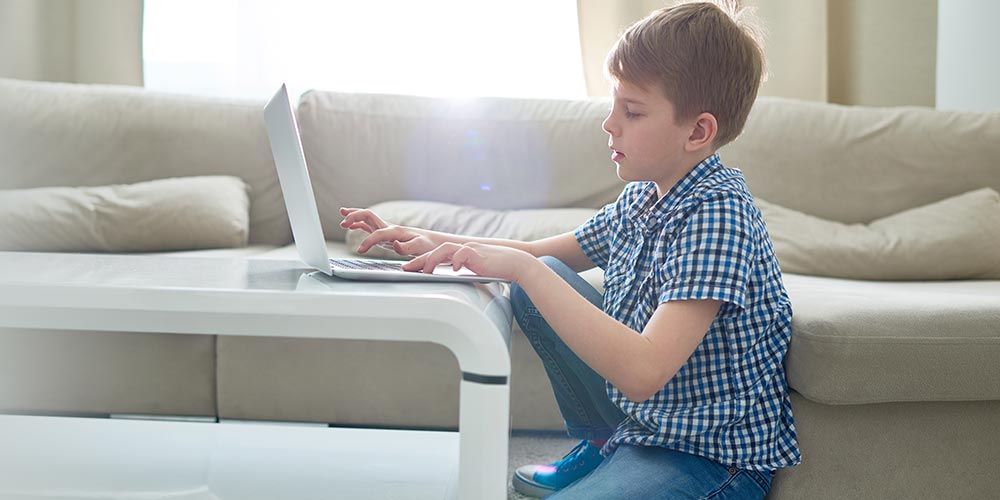Dear Families,
The Covid-19 pandemic has forced us all into lockdown once again and we are now continuing our Remote Learning, with the use of computers at home to access our learning.
Whilst it is wonderful that we have this excellent technology to help us continue our emergency schooling, using this technology creates some issues that we really need to be aware of so that we can keep our students safe in the online environment.
We have received contact from some families who are having issues such as students accessing inappropriate websites, watching any Youtube Video they want, sneaking laptops at night or when parents are not close-by, joining themselves up to chatrooms, to name a few.
At school, all of our student laptops connect to the internet through a DET service that blocks them from accessing unsafe websites. Once the computers leave school and access the internet through their homes, this blocking service does not work. It only works in the school. It is up to families to provide their own protection.
How can you keep your child safe online at home?

- Keep screens and devices where you can always see them
- always monitor your child’s time online
- keep the computer in a central spot within your home
- set wi-fi passwords so your children cannot go online without permission
- keep tablets, phones, laptops out of bedrooms
- be vigilent about checking browser histories to see what sites your child is looking at
2. Know your parental controls
Innocent searches can sometimes lead to not-so-innocent results.
- Learn how to use parent controls/search restrictions offered by web browsers or your internet provider (you may need to contact your internet provider)
- the SafeSearch feature on Google may be useful to you to block many inappropriate sites
- Learn more about parent controls here
- Turn the internet off at night-time (or use a password)
3. Know who your children’s online friends are
As adults, we know that some people online aren’t who they say they are, but children and young people can be alarming naïve about who they are chatting with if they are not taught to be cyber wise from an early age.
Make sure you become friends and contacts within your child’s social media circles and ensure you monitor posts. Your children may resist but tell them that is one of the conditions for you to allow them access
4. Be ‘share aware’ to protect your privacy
Encourage your children to ask themselves before posting anything if the information (i.e. name, phone number, home address, email, name of school) or photo is something they would give a stranger. If the answer is no, don’t post it.
If your child is sharing photos or posts online ask your child to let you see what they are sharing or ask an older sibling to check any photos before they’re shared.
5. Teach your children to keep their location private
Most apps, networks and devices have geo-tagging features which make your whereabouts public and can lead someone directly to you. These features should be turned off for obvious privacy and safety reasons. Digital photos also contain metadata (information about the time, date and GPS coordinates) which may reveal more then you want to. Some social media platforms automatically hide or remove this data, but not all, so do your homework and know how much info you’re sharing.
6. Be #SocialNetworkSavvy
Educate yourself on ways to be safe on social networks so that you can give the best advice to your children. Sign up to the social networks and apps your children are using and find out how to use the privacy settings and reporting mechanisms. Talk about how they can stay safe on social networks, including talking to a trusted person when they are worried, and being aware of what constitutes online bullying – both as a perpetrator and a victim.
If your child uses social networks, be sure they know how to:
- Report inappropriate and/or offensive posts
- Block someone
- Keep information private.
This website has excellent information to assist you at home- https://www.esafety.gov.au/
Tips on how to stay safe online during the Covid-19 pandemic: https://www.esafety.gov.au/key-issues/covid-19
